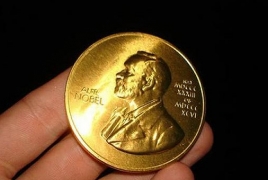
Angus Deaton is the 2015 winner of the Nobel Prize in economics. The Dwight D Eisenhower professor of economics and international affairs at the Woodrow Wilson School of Public and International Affairs at Princeton, he is best known for his work on health, wellbeing, and economic development, the Guardian reports.
The Nobel Committee said: “To design economic policy that promotes welfare and reduces poverty, we must first understand individual consumption choices. More than anyone else, Angus Deaton has enhanced this understanding.
“By linking detailed individual choices and aggregate outcomes, his research has helped transform the fields of microeconomics, macroeconomics, and development economics.”
His latest book, The Great Escape: Health, Wealth and the Origins of Inequality, argues that a more sophisticated analysis of economic data shows that while most people in the world have gained in terms of health and wellbeing from GDP growth, there are many groups that have missed out.
Edinburgh-born microeconomist Angus Deaton of Princeton has been recognized for his analysis of consumption, poverty, and welfare.
This global view is reflected in his latest research, which he says “focuses on the determinants of health in rich and poor countries, as well as on the measurement of poverty in India and around the world”.
Measuring poverty is often based on snapshot surveys of income levels, but Deaton is lauded for adopting groups or cohorts of the population and examining the improvements, or not, in their wellbeing.
Deaton, 69, was born in Edinburgh and educated at the same private school as former Prime Minister Tony Blair, Fettes College. He went to Cambridge where he later taught, before moving to the US and taking dual citizenship.

